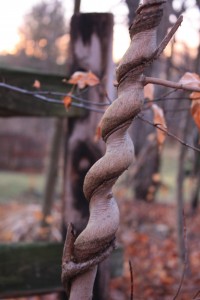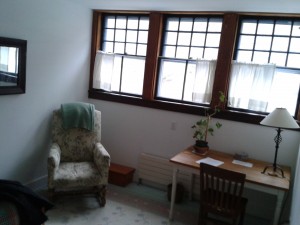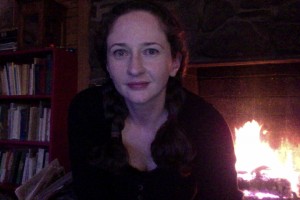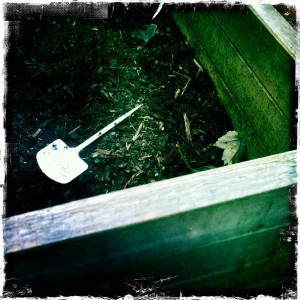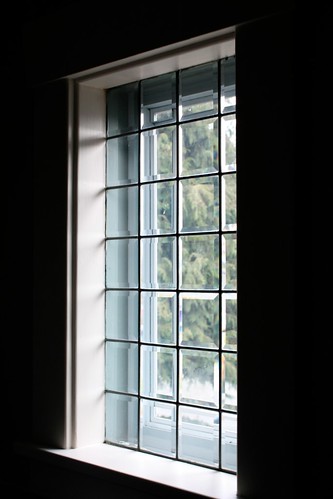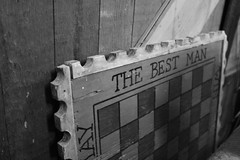Serendipity
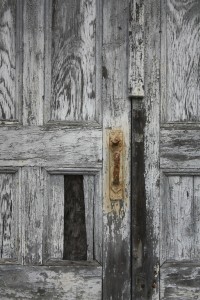 I don’t believe things happen for a reason, or are meant to be. Things just happen. When I’m open to new experiences, sometimes those things bring delight. One Sunday afternoon, I brought the children to the library just as they announced closing. We scattered to gather books. With no time to peruse, I selected a few based solely on their covers. When we returned home and I sorted through my finds, I was instantly attracted to the rich textures of Simon Van Booy’s Everything Beautiful Began After.
I don’t believe things happen for a reason, or are meant to be. Things just happen. When I’m open to new experiences, sometimes those things bring delight. One Sunday afternoon, I brought the children to the library just as they announced closing. We scattered to gather books. With no time to peruse, I selected a few based solely on their covers. When we returned home and I sorted through my finds, I was instantly attracted to the rich textures of Simon Van Booy’s Everything Beautiful Began After.
It’s a gorgeous book, with a sensual finish and irresistible uncut pages. (You must touch it!) The novel is filled with intimate treasures. I was drawn to the simple observations, so like the world I see, yet many find obscure. I searched for the author online and discovered he was hosting a winter writing workshop. I knew nothing of writing workshops, and had no confidence I’d be one of the five selected. I collected my stories, wrote a meandering cover letter and submitted my application.
I was stunned when I received the acceptance message. I’d just presented to the largest audience of my career, followed by a recorded interview, and a first meeting with a cherished friend I’d previously only known online. I was dining with him at a crowded counter in Pike Place Market, entirely overstimulated from my morning, when the message from Simon arrived. Even his email correspondence brings quiet contemplation. I was grateful to view it in the presence of a friend who cares about my happiness and success. I otherwise might not have believed it was real.
I soon contacted my writerly friends to ask about workshops, the author, their experiences and opinions. Some purchased his novel to learn why I was so enchanted. (I do adore his short story collections more than the novel, if you’re looking for a place to start reading him.) My friends encouraged my participation. I worried my family would find it frivolous, but my parents were supportive, and my children, especially my daughter, were proud and understood the unique opportunity.
Beginnings
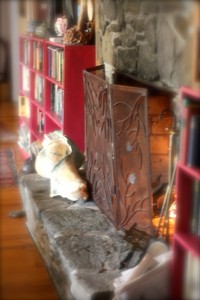 We arrived one-by-one, settled into our rooms at Wellspring House and met downstairs for lunch. I must have been incredibly nervous, because I remember nothing of that meal. I know it happened. I’ve got a copy of the schedule. And it’s a shame I can’t recall the food or conversation. All our meals were prepared by Karen, a beautiful person and amazing chef. I wanted to take her home with me. We debated which of us lived in the most beautiful place on earth, and I knew there was no use trying to convince her to leave. Our temporary family of five writers ate two meals together each day, a ritual we all appreciated.
We arrived one-by-one, settled into our rooms at Wellspring House and met downstairs for lunch. I must have been incredibly nervous, because I remember nothing of that meal. I know it happened. I’ve got a copy of the schedule. And it’s a shame I can’t recall the food or conversation. All our meals were prepared by Karen, a beautiful person and amazing chef. I wanted to take her home with me. We debated which of us lived in the most beautiful place on earth, and I knew there was no use trying to convince her to leave. Our temporary family of five writers ate two meals together each day, a ritual we all appreciated.
Following lunch, we began our first workshop session. We introduced ourselves and our projects. My fellow participants included three accomplished writers with specific goals and projects. I listened to their stories of world travel, mutual friendship, and delicious consumption of the arts. I worried they’d feel insulted by my naïveté, and my incessant questions.
I was reluctant to confess I had no plans, and wasn’t currently working on anything. I admitted I merely wanted to discover if it was even possible for me to commit to a novel-length work. In my cover letter for the workshop, I’d professed, ‘I’m a writer.’ It’s rare for me to self-identify as a writer. I write for selfish reasons. I write for the thrill of creation and destruction of worlds within my control. I don’t write out of any strong compulsion or desire. I don’t feel worthy of the label. I was there to seek my own identity as a writer, and test my writing stamina.
Connections
Within the first hour, I knew I was building knowledge I could personally apply. We talked about environment and the importance of our surroundings when we write. I’ve never cultivated a permanent writing place of my own. My desk is where I pay the bills and shuffle through school paperwork. Before the workshop, it was in a very active location in my home, a frequent resting place for wandering toys. I’ve never made it off-limits to others.
Since I’ve returned, I rearranged my room and moved my desk away from the door, with a view out the window. I moved my dresser into my closet, to create more space in the room, and moved my bookshelf closer to the desk. It made an immediate difference to the ambiance and character of the room. My bed now faces the window, instead of the bathroom and hallway doors. And this is where I write.
Some personal goals from the first day:
- Designate my desk as off-limits to everyone. I’d actually like to invest in an antique spinet desk (perhaps this one) I can close.
- Write at the same time every day, or make a schedule. I could potentially block Saturday mornings. Another writer and I realized we need to make appointments with ourselves to write, and treat those appointments as we do professional meetings.
- Keep the browser closed while I write. And Twitter. I’ve done quite well at not tweeting as much, but I do still lurk.
- Eat properly. I usually don’t eat breakfast, but this week started having granola with blueberries and raspberries.
I asked permission to blog about the sessions, and told Simon I, of course, wouldn’t share any of his secrets. He welcomed it and thanked me for asking, first. He loves to share, and openly credits others for what he’s learned. (I will definitely be writing more of what I learned from him about teaching.) One of the most interesting ideas Simon shared, and I didn’t note his original source, is to print your work each day. This was surprising, as I’ve tried to have a paperless environment at the office for many years. But the more I heard, the better it sounded.
He explained how disheartening it can be when you write and revise and, at the end of the week, feel you’ve spent hours and gotten nowhere. He suggested at the end of each day, print what you’ve written, and put a rock on it. Do the same the next day, and so on. At the end of the week, your (digital) work may be shorter than when you started, but if you gather all the papers, you’ll feel a sense of accomplishment, and recognize you’ve done more than it seems.
Confessions
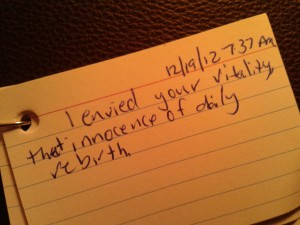 Another suggestion, which led me to a discovery I found personally meaningful, was to keep at hand a book you don’t understand. He spoke of Nabokov’s The Original of Laura. He described the way Nabokov wrote on index cards. I spoke up, ‘I could do that!’ Of course I could do that. It makes complete sense to me. Much of my difficulty in storytelling is with the attempt to tell a story in a linear format. I usually write stories starting somewhere in the middle. I add sentences above and below and in between. It’s an enticing puzzle to me. I get so much joy simply replacing words and changing meaning, layering more and more, with fewer and fewer words. I would love to write on note cards and rearrange them over and over. And so I shall!
Another suggestion, which led me to a discovery I found personally meaningful, was to keep at hand a book you don’t understand. He spoke of Nabokov’s The Original of Laura. He described the way Nabokov wrote on index cards. I spoke up, ‘I could do that!’ Of course I could do that. It makes complete sense to me. Much of my difficulty in storytelling is with the attempt to tell a story in a linear format. I usually write stories starting somewhere in the middle. I add sentences above and below and in between. It’s an enticing puzzle to me. I get so much joy simply replacing words and changing meaning, layering more and more, with fewer and fewer words. I would love to write on note cards and rearrange them over and over. And so I shall!
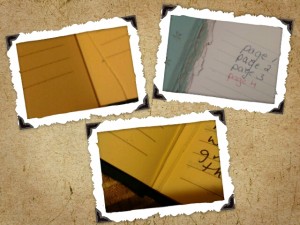 He also described a composer (Duparc?) who destroyed most of his compositions. I observed the reactions of my fellow-participants, before offering another confession. I tear out journal pages and throw them away. I’ve done it my entire life. I have journals from my childhood that are empty, with the first dozen pages or so torn out. I’m not sure why I’ve even kept them. When I located them for this photo, I wanted to destroy the pages that do remain, to erase the person I was before. I’ve no desire to leave a legacy. I’m content with my ephemera.
He also described a composer (Duparc?) who destroyed most of his compositions. I observed the reactions of my fellow-participants, before offering another confession. I tear out journal pages and throw them away. I’ve done it my entire life. I have journals from my childhood that are empty, with the first dozen pages or so torn out. I’m not sure why I’ve even kept them. When I located them for this photo, I wanted to destroy the pages that do remain, to erase the person I was before. I’ve no desire to leave a legacy. I’m content with my ephemera.
By the end of the first session, I’d also confessed my reclusive nature, and how unusual it is for me to deliberately choose to socialize outside professional engagements. The workshop was way outside my comfort zone, but such a dramatic transition, I clung to the routines and found comfort in the schedule. The hours on the opposite coast, and unreliable phone service made it difficult to conveniently communicate with my family. I was forced to focus on my immediate surroundings.
We discussed the work process of many writers, composers and artists. I realized we’re all so very different, and no good will come of me comparing myself to, ‘normal.’ While I may never meet others who act or think the way I do, it’s not wrong, or odd. It’s just me. My way. My way is not so bad. And now I have additional tools to make it even better.
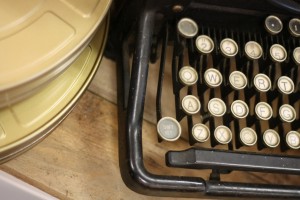 The Humanity Engine was one of my favorite stories to write. I don’t often reflect on my writing, but sometimes events trigger memories and renewed interest. The NSA revelations this week led me to return to read that story and others. And now the whistleblower, Edward Snowden, has openly accepted responsibility for his actions in this Guardian piece.
The Humanity Engine was one of my favorite stories to write. I don’t often reflect on my writing, but sometimes events trigger memories and renewed interest. The NSA revelations this week led me to return to read that story and others. And now the whistleblower, Edward Snowden, has openly accepted responsibility for his actions in this Guardian piece. I don’t believe things happen for a reason, or are meant to be. Things just happen. When I’m open to new experiences, sometimes those things bring delight. One Sunday afternoon, I brought the children to the library just as they announced closing. We scattered to gather books. With no time to peruse, I selected a few based solely on their covers. When we returned home and I sorted through my finds, I was instantly attracted to the rich textures of Simon Van Booy’s
I don’t believe things happen for a reason, or are meant to be. Things just happen. When I’m open to new experiences, sometimes those things bring delight. One Sunday afternoon, I brought the children to the library just as they announced closing. We scattered to gather books. With no time to peruse, I selected a few based solely on their covers. When we returned home and I sorted through my finds, I was instantly attracted to the rich textures of Simon Van Booy’s  We arrived one-by-one, settled into our rooms at
We arrived one-by-one, settled into our rooms at  Another suggestion, which led me to a discovery I found personally meaningful, was to keep at hand a book you don’t understand. He spoke of Nabokov’s
Another suggestion, which led me to a discovery I found personally meaningful, was to keep at hand a book you don’t understand. He spoke of Nabokov’s  He also described a composer (Duparc?) who destroyed most of his compositions. I observed the reactions of my fellow-participants, before offering another confession. I tear out journal pages and throw them away. I’ve done it my entire life. I have journals from my childhood that are empty, with the first dozen pages or so torn out. I’m not sure why I’ve even kept them. When I located them for this photo, I wanted to destroy the pages that do remain, to erase the person I was before. I’ve no desire to leave a legacy. I’m content with my ephemera.
He also described a composer (Duparc?) who destroyed most of his compositions. I observed the reactions of my fellow-participants, before offering another confession. I tear out journal pages and throw them away. I’ve done it my entire life. I have journals from my childhood that are empty, with the first dozen pages or so torn out. I’m not sure why I’ve even kept them. When I located them for this photo, I wanted to destroy the pages that do remain, to erase the person I was before. I’ve no desire to leave a legacy. I’m content with my ephemera. A single dropped sequin twirled silvery between my parted soles and into the open drain. Memory chased it down the pipes, bubbling awake Charlie in 11B, and spilling beneath the emptiness of the tenth floor. It caught in a spun blonde clog at 9B and fluttered in place, just a wall apart from my abandoned gown.
A single dropped sequin twirled silvery between my parted soles and into the open drain. Memory chased it down the pipes, bubbling awake Charlie in 11B, and spilling beneath the emptiness of the tenth floor. It caught in a spun blonde clog at 9B and fluttered in place, just a wall apart from my abandoned gown.
